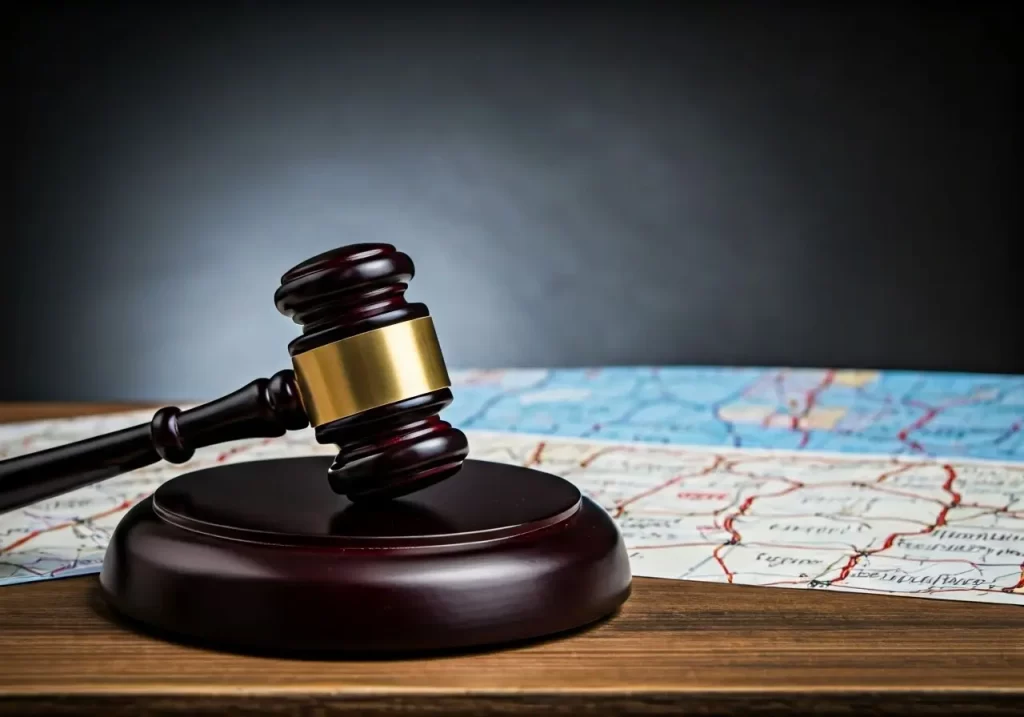When it comes to driving while intoxicated (DWI), each state in the U.S. has its own set of rules and penalties. New Jersey is no exception. But how do NJ DWI laws stack up against those in other states? In this blog, we’ll take a closer look at what sets New Jersey apart and what it means for drivers.
What Makes NJ DWI Laws Unique?
New Jersey enforces some of the most stringent DWI laws in the nation. Unlike many states, NJ classifies DWI as a traffic offense and not a crime, which can affect how cases are handled in the court system.
One significant aspect that makes New Jersey unique is its lack of plea bargains for DWI offenses. In other states, drivers might negotiate reduced sentences or charges, but New Jersey’s system requires the legal process to proceed in its entirety. This means drivers need to be prepared for potentially longer and more complex court cases, underscoring the importance of experienced legal representation.
Furthermore, New Jersey participates in the Interstate Driver License Compact, sharing DWI convictions with other states. This means a DWI conviction in New Jersey could impact your driving privileges even in your home state, complicating matters for out-of-state drivers.
Additionally, New Jersey doesn’t allow administrative suspension of a driver’s license following a DWI arrest, a process common in many states. Instead, license suspension is determined judicially, which can be both an advantage and a challenge depending on the case specifics.
Comparing Penalties: NJ vs Other States
Penalties for DWI in New Jersey can be severe, with heavy fines, license suspensions, and even mandatory ignition interlock devices after the first offense. Understanding these penalties and how they compare to those in other states can be crucial for drivers.
In New Jersey, a first offense DWI with a BAC of 0.08% or more involves fines between (250 and )400, mandatory 12 to 48 hours at an Intoxicated Driver Resource Center, and a three-month license suspension. In comparison, states like Ohio might offer lesser suspension periods or monetary fines for similar offenses, highlighting New Jersey’s firm stance on DWIs.
For second offenses, New Jersey increases the severity with fines between (500 and )1,000, a two-year license suspension, and up to 90 days in jail. More strict than states like Colorado, where a second offense doesn’t necessarily mandate jail time, New Jersey ensures repeat offenders face substantial consequences.
Moreover, third-time offenders in New Jersey face harsher penalties, including a 10-year license suspension and mandatory jail time, which can be offset by participation in an approved rehabilitation program. These enhanced measures emphasize the state’s intent to minimize drunk driving incidents through increased deterrence.
How Do BAC Limits Differ?
In NJ, the legal blood alcohol concentration (BAC) limit is 0.08%, similar to many states. However, there are zero-tolerance policies for underage drivers and stricter consequences at higher BAC levels, making vigilance essential.
New Jersey’s emphasis on maintaining low BAC limits means that drivers with a BAC at or above the 0.15% level face significantly harsher penalties, such as increased fines and longer license suspensions. This contrasts with states like Texas, where higher BACs do not necessarily result in escalated penalties.
For commercial drivers, the acceptable BAC limit is even lower at 0.04%. This aligns with federal standards but reaffirms New Jersey’s strict approach to regulating high-risk driver categories to ensure public safety.
Legal Processes: New Jersey’s Approach
The legal process for DWI in New Jersey involves unique elements, such as the absence of plea bargains for reduced sentences and mandatory educational programs. These factors distinguish NJ’s system from other states.
In New Jersey, after a DWI arrest, individuals are often required to attend an Intoxicated Driver Resource Center, which provides education and evaluation services. This compulsory program is part of New Jersey’s comprehensive approach to addressing the root causes of DWI offenses, setting it apart from states where such programs might be optional or unavailable.
Another distinct aspect is the mandated installation of ignition interlock devices for certain offenders. These devices prevent a vehicle from starting if the driver’s breath alcohol concentration is above a preset limit. This measure aims to prevent repeat offenses and enhances road safety, a practice not consistently enforced across all states.
Staying Informed and Safe
Being knowledgeable about NJ’s DWI laws can keep you out of trouble. Regular updates on legal changes and adhering to safe driving practices are key to staying safe and compliant.
It’s not just about knowing the law; understanding the potential consequences of a DWI conviction in New Jersey can make a significant difference. Stay updated with any changes to state laws, and consider legal representation if you’re facing a charge. With the correct information and professional guidance, you can navigate these challenges more effectively.
In times of legal challenge, testimonials from those who’ve experienced similar struggles can be invaluable. Reading experiences on real cases from individuals who faced charges in New Jersey can offer insights and pave the way to informed decision-making. Explore client testimonials to learn how others have successfully navigated these legal waters.
Understanding NJ DWI Laws: Key Takeaways
Navigating DWI laws can be complex, especially when they vary from state to state. In New Jersey, stricter penalties and unique legal nuances mean drivers need to be particularly cautious. Understanding these differences not only helps in staying compliant but also safeguards you from unforeseen legal headaches. For more information or legal assistance, consider visiting our home page to learn how we can support you.


